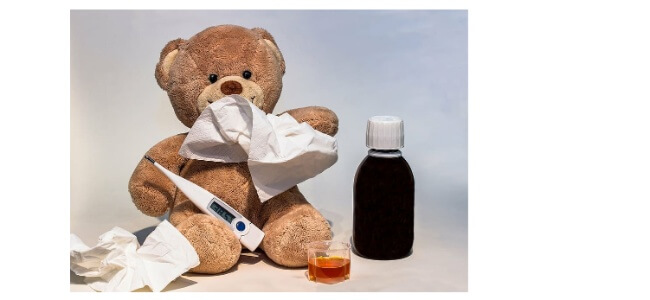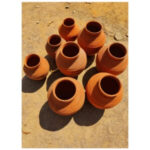Monsoon is a season loved by many for its refreshing showers and pleasant weather. However, along with the joy it brings, monsoon also brings a host of health concerns. From water-borne diseases to viral infections, the rainy season can make us susceptible to various illnesses. In this post, we will delve deeper into common monsoon illnesses and provide detailed information on symptoms, diagnostic tests, and preventive measures to stay healthy during this time.
Table of Contents
Monsoon Illness And Precautions

This article serves as a comprehensive guide to common monsoon diseases and prevention tips. By understanding the nature of these illnesses and taking necessary precautions, you can safeguard yourself and your loved ones from falling prey to monsoon-related health issues.
Common Monsoon Illness And Precautions | Health Tips For Monsoon
Monsoon in India brings with it the risk of several contagious diseases. During this season, various infections, including the common cold, flu, typhoid, malaria, dengue, and fungal infections, are commonly caused by bacteria, viruses, fungi, and parasites. Rather than succumbing to illness, it is advisable to prioritize preventive measures to ensure our safety and well-being. Read on to learn about common monsoon illness and precautions for a healthy season.
List of Common Monsoon Illnesses

Here is a list of common monsoon illness and precautions.
- Malaria
Malaria is a mosquito-borne disease caused by the Plasmodium parasite. It is characterized by symptoms such as high fever, chills, headache, body aches, and fatigue. To confirm the presence of the malaria parasite, a blood test called a peripheral smear is conducted in India. Malaria is a common disease in rainy season. - Dengue Fever
Dengue is another mosquito-borne viral infection. Its symptoms include high fever, severe headache, joint and muscle pain, rashes, and mild bleeding manifestations. Diagnosis of dengue involves a blood test to detect the dengue virus or its antibodies. - Chikungunya
Chikungunya is transmitted by the Aedes mosquito. The symptoms include high fever, severe joint pain, headache, muscle pain, rash, and fatigue. Similar to dengue, a blood test is necessary to confirm the infection by detecting specific antibodies. - Typhoid Fever
Typhoid fever is a bacterial infection caused by Salmonella typhi. Its symptoms include high fever, abdominal pain, weakness, loss of appetite, and sometimes a rash. Diagnosis is established through a blood test or a stool culture to detect the presence of Salmonella bacteria. - Leptospirosis
Leptospirosis is a bacterial infection transmitted through water contaminated with animal urine. Symptoms include high fever, headache, muscle pain, jaundice, and red eyes. Diagnosis is confirmed through a blood test that detects antibodies against the bacteria. - Gastrointestinal Infections
Gastrointestinal infections, including diarrhoea and vomiting, are common during the monsoon season. Symptoms include stomach cramps, nausea, dehydration, and sometimes fever. Stool tests are conducted to identify the causative agents, such as bacteria or parasites. - Respiratory Infections
Respiratory infections such as the common cold, flu, and pneumonia are prevalent during the rainy season. Symptoms include cough, sneezing, sore throat, difficulty breathing, and fever. Diagnosis is based on clinical examination by a healthcare professional, although specific tests like throat swabs or chest X-rays may be required in certain cases. - Conjunctivitis
Conjunctivitis, or pink eye, is an inflammation of the outermost layer of the eye and the inner surface of the eyelids. It is characterized by symptoms such as redness, itching, tearing, and discharge from the eyes. Diagnosis is typically made through a physical examination by an ophthalmologist. - Fungal Infections
Fungal infections, such as athlete’s foot and ringworm, thrive in the humid environment of the monsoon. Symptoms include itching, redness, scaling, and the appearance of circular rashes. A dermatologist can diagnose these infections by examining the affected area and, if necessary, by performing a microscopic examination of skin scrapings. - Hepatitis A
Hepatitis A is a viral infection that affects the liver. It spreads through contaminated food and water. Symptoms include jaundice, fatigue, abdominal pain, loss of appetite, and dark urine. Blood tests are conducted to detect specific antibodies or viral particles in the bloodstream.
Prevention Tips for Monsoon Illnesses | Monsoon Illness And Precautions

Here is a list of health tips for the rainy season. Follow these safety precautions during rainy season to stay safe and healthy.
- Maintain personal hygiene by washing hands frequently with soap or using hand sanitisers, especially before meals.
- Drink clean and boiled water to avoid water-borne diseases. If needed, use water purifiers or bottled water as alternatives.
- Avoid eating street food and opt for freshly prepared meals to minimize the risk of food-borne infections.
- Keep your surroundings clean and ensure there is no stagnant water that can serve as a breeding ground for mosquitoes.
- Use mosquito repellents and wear protective clothing like long-sleeved shirts and pants to prevent mosquito bites.
- Stay away from stagnant water bodies, such as puddles, to reduce the risk of mosquito breeding.
- Keep your home dry and well-ventilated to prevent the growth of fungi and moulds.
- Avoid walking barefoot, especially in public places, to prevent fungal infections.
- Consume a balanced diet rich in vitamins and minerals to boost your immune system.
- Avoid close contact with individuals suffering from infectious diseases to minimize the risk of transmission.
- Stay updated with vaccinations, especially for diseases like typhoid and hepatitis A. Consult with a healthcare professional to determine the necessary vaccines.
- Use umbrellas or raincoats to protect yourself from rainwater and minimize exposure to contaminated water.
- Dry wet clothes thoroughly before wearing them to prevent fungal infections and skin irritations.
- Avoid excessive exposure to rain, as it can weaken your immune system and increase the risk of respiratory infections.
- Do not ignore symptoms and seek medical help promptly if you experience any illness during the monsoon season.
- Follow a regular exercise routine to strengthen your immune system and maintain overall health.
- Include immunity-boosting foods like citrus fruits, ginger, garlic, and yoghurt in your diet.
- Avoid crowded places, especially during peak monsoon season, to reduce the risk of viral infections.
- Ensure proper ventilation and sunlight in your living spaces to prevent the growth of moulds and bacteria.
- Get enough sleep and rest to support your immune system’s ability to fight off infections.
Prevention from Food and Water-borne Diseases | Common Monsoon Diseases And Prevention Tips
Here is a list of health tips for monsoon season and to prevent water-borne diseases.
- Wash fruits and vegetables thoroughly under clean water before consumption.
- Avoid eating raw or uncooked seafood and meat, as they may contain harmful bacteria or parasites.
- Consume freshly cooked meals and avoid leftovers, as they may be contaminated with bacteria or toxins.
- Drink purified water or opt for bottled water to reduce the risk of water-borne diseases.
- Avoid consuming street food or food from unhygienic establishments, as they may not adhere to proper food handling and storage practices.
Prevention from Airborne Diseases | Common Monsoon Illness And Prevention
Here is a list of health tips for the monsoon season and to prevent air-borne diseases.
- Use masks or handkerchiefs to cover your nose and mouth in crowded places or when you suspect exposure to airborne pathogens.
- Avoid close contact with individuals suffering from respiratory infections, such as coughs and colds.
- Maintain good ventilation in closed spaces by opening windows or using fans to ensure the circulation of fresh air.
As monsoon brings its share of illnesses, it is essential to take adequate precautions to stay healthy by following the above-mentioned health tips for monsoon season. By familiarizing yourself with common monsoon diseases, recognizing their symptoms, and following the preventive measures mentioned above, you can minimize the risk of contracting monsoon-related illnesses. Remember to seek medical attention if you experience any symptoms and stay informed about the necessary vaccinations. Enjoy the monsoon season while staying safe and protected.
Thank you for your interest in our post on “Common Monsoon Illness And Precautions“! We are delighted that you found the information useful and enjoyable. Your time and attention are greatly appreciated.
If you found the content on monsoon illness and precautions helpful, we encourage you to share it with your friends, family, and social media networks. By spreading awareness about common monsoon illnesses and prevention, we can collectively work towards keeping everyone safe and healthy during this season.
To ensure you never miss out on valuable insights and engaging content, we recommend subscribing to our blog. By doing so, you will receive regular updates on various topics, including travel, lifestyle, and more. Additionally, you can also follow us on Instagram, Twitter, Pinterest, and YouTube for a diverse range of content that caters to your interests.
We sincerely value your continued support and look forward to providing you with informative and entertaining content in the future. Stay connected, stay informed, and let’s navigate through the monsoon season with well-being and preparedness.
#MonsoonIllness #RainySeason #monsoonhealthcare #Monsoon

Thanks for visiting our site nirvandiaries.com and taking the time to read this post.
If you wish to collaborate or work with us then reach us at [email protected]
We’d love it if you’d comment by sharing your thoughts on this post and share this post on social media and with your friends.
Follow our journey on our social media channels:
Facebook Twitter Instagram Pinterest YouTube






